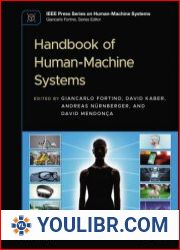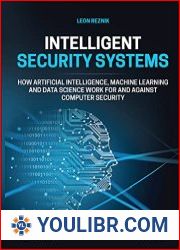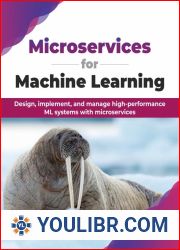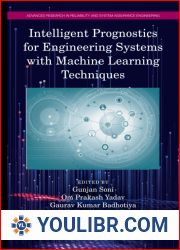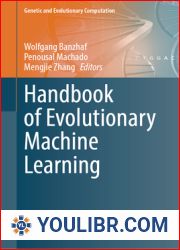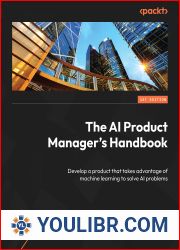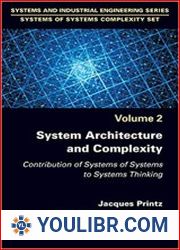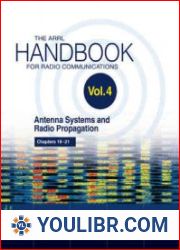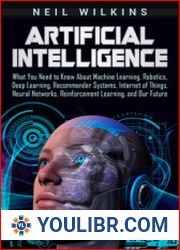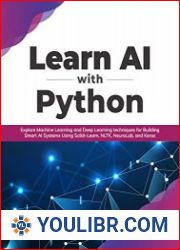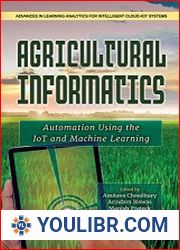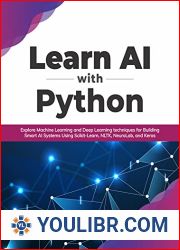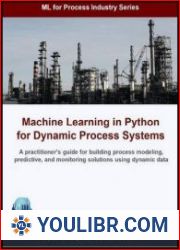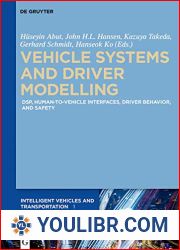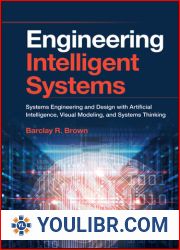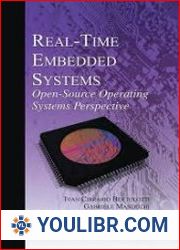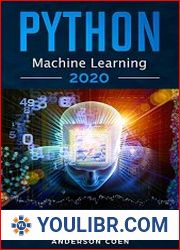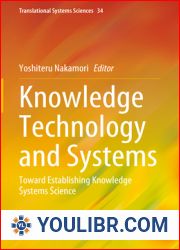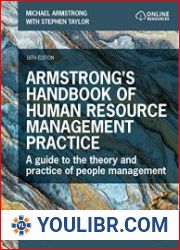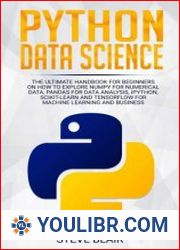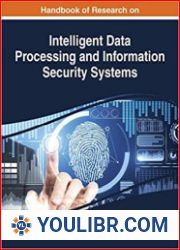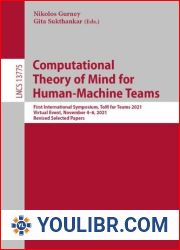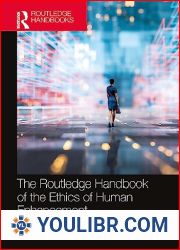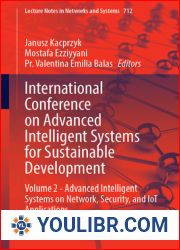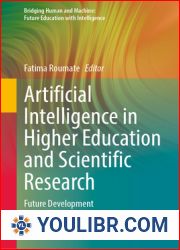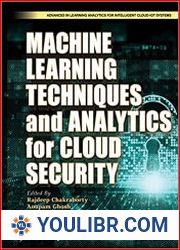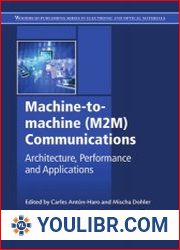
BOOKS - EQUIPMENT - Handbook of Human-Machine Systems

Handbook of Human-Machine Systems
Author: Giancarlo Fortino, David Kaber, Andreas Nurnberger
Year: 2023
Format: EPUB
File size: 28.7 MB
Language: ENG

Year: 2023
Format: EPUB
File size: 28.7 MB
Language: ENG

The Handbook of Human-Machine Systems (HMS) is a groundbreaking work that sheds light on the intricate relationship between humans and machines, offering profound insights into the evolution of technology and its impact on our lives. This comprehensive volume brings together a team of distinguished researchers who delve into the latest developments in HMS research and development from multiple perspectives, providing a broad overview of state-of-the-art techniques and technologies. The book begins by exploring Brain-Machine Interfaces (BMIs) and Assistive Technologies, such as devices designed to enhance locomotion, communication, and cognition. These advancements have the potential to revolutionize the way we interact with machines and each other, enabling individuals with disabilities or impairments to lead more fulfilling lives. The authors then delve into Collaborative Intelligent Systems and Applications, discussing the transdisciplinary nature of this field, which combines computer science, artificial intelligence, cognitive science, and human factors engineering. One of the most significant contributions of HMS is the integration of human cognition into intelligent and artificially intelligent system designs. By understanding how humans process information and make decisions, researchers can create systems that complement and augment human abilities, leading to breakthroughs in fields such as healthcare, transportation, and education. The book also covers various aspects of interactive and wearable computers and systems, highlighting their potential to transform our daily lives.
Справочник по человеко-машинным системам (HMS) - это новаторская работа, которая проливает свет на сложные отношения между людьми и машинами, предлагая глубокое понимание эволюции технологий и их влияния на нашу жизнь. Этот всеобъемлющий том объединяет команду выдающихся исследователей, которые углубляются в последние разработки в области исследований и разработок HMS с разных точек зрения, предоставляя широкий обзор современных методов и технологий. Книга начинается с изучения интерфейсов мозг-машина (ИМТ) и вспомогательных технологий, таких как устройства, предназначенные для улучшения передвижения, общения и познания. Эти достижения могут революционизировать то, как мы взаимодействуем с машинами и друг с другом, позволяя людям с ограниченными возможностями или нарушениями вести более полноценную жизнь. Затем авторы углубляются в «Совместные интеллектуальные системы и приложения», обсуждая трансдисциплинарную природу этой области, которая объединяет информатику, искусственный интеллект, когнитивную науку и инженерию человеческих факторов. Одним из наиболее значительных вкладов HMS является интеграция человеческого познания в интеллектуальные и искусственно интеллектуальные системы. Понимая, как люди обрабатывают информацию и принимают решения, исследователи могут создавать системы, которые дополняют и расширяют способности человека, что приводит к прорывам в таких областях, как здравоохранение, транспорт и образование. Книга также охватывает различные аспекты интерактивных и носимых компьютеров и систем, подчеркивая их потенциал для преобразования нашей повседневной жизни.
HMS (Human-Machine Systems Handbook) est un travail pionnier qui met en lumière les relations complexes entre les personnes et les machines en offrant une compréhension approfondie de l'évolution des technologies et de leur impact sur nos vies. Ce volume complet réunit une équipe de chercheurs exceptionnels qui approfondit les derniers développements dans le domaine de la recherche et du développement du SGH sous différents angles, fournissant un large aperçu des méthodes et des technologies modernes. livre commence par l'étude des interfaces cerveau-machine (IMC) et des technologies auxiliaires telles que les appareils conçus pour améliorer le mouvement, la communication et la connaissance. Ces progrès peuvent révolutionner la façon dont nous interagissons avec les machines et les uns avec les autres, en permettant aux personnes handicapées ou handicapées de mener une vie plus épanouissante. s auteurs examinent ensuite la nature transdisciplinaire de ce domaine, qui regroupe l'informatique, l'intelligence artificielle, les sciences cognitives et l'ingénierie des facteurs humains. L'une des contributions les plus importantes du HMS est l'intégration de la connaissance humaine dans les systèmes intellectuels et artificiels. En comprenant comment les gens traitent l'information et prennent des décisions, les chercheurs peuvent créer des systèmes qui complètent et renforcent les capacités humaines, ce qui entraîne des percées dans des domaines tels que la santé, les transports et l'éducation. livre aborde également différents aspects des ordinateurs et systèmes interactifs et portables, soulignant leur potentiel pour transformer notre vie quotidienne.
Manual de stemas Hombre-Máquina (HMS) es un trabajo pionero que arroja luz sobre las complejas relaciones entre humanos y máquinas, ofreciendo una comprensión profunda de la evolución de la tecnología y su impacto en nuestras vidas. Este amplio volumen reúne a un equipo de destacados investigadores que profundizan en los últimos desarrollos en investigación y desarrollo del HMS desde diferentes perspectivas, proporcionando una amplia visión de los métodos y tecnologías actuales. libro comienza con el estudio de interfaces cerebro-máquina (IMC) y tecnologías auxiliares, como dispositivos diseñados para mejorar el movimiento, la comunicación y la cognición. Estos avances pueden revolucionar la forma en que interactuamos con las máquinas y entre sí, permitiendo a las personas con discapacidades o discapacidades llevar una vida más plena. A continuación, los autores profundizan en 'stemas inteligentes colaborativos y aplicaciones', debatiendo sobre la naturaleza transdisciplinar de este campo, que aúna la informática, la inteligencia artificial, la ciencia cognitiva y la ingeniería de factores humanos. Una de las contribuciones más significativas del HMS es la integración de la cognición humana en sistemas intelectuales e intelectualmente inteligentes. Al comprender cómo las personas procesan la información y toman decisiones, los investigadores pueden crear sistemas que complementen y amplíen las capacidades humanas, lo que conduce a avances en áreas como la salud, el transporte y la educación. libro también cubre diferentes aspectos de ordenadores y sistemas interactivos y portátiles, destacando su potencial para transformar nuestra vida cotidiana.
O Manual de stemas Humanos e Máquinas (HMS) é um trabalho inovador que ilumina as relações complexas entre pessoas e máquinas, oferecendo uma compreensão profunda da evolução da tecnologia e seus efeitos sobre nossas vidas. Este volume abrangente reúne uma equipe de pesquisadores extraordinários que se aprofundam nos últimos desenvolvimentos de pesquisa e desenvolvimento do HMS de diferentes perspectivas, fornecendo uma ampla visão das técnicas e tecnologias modernas. O livro começa com o estudo de interfaces cérebro-máquina (IMC) e tecnologias de apoio, como dispositivos projetados para melhorar a movimentação, comunicação e conhecimento. Estes avanços podem revolucionar a forma como interagimos com as máquinas e umas com as outras, permitindo que as pessoas com deficiência ou deficiência tenham uma vida mais completa. Em seguida, os autores se aprofundam em «stemas e aplicações inteligentes colaborativos», discutindo a natureza transdisciplinar desta área, que combina informática, inteligência artificial, ciência cognitiva e engenharia de fatores humanos. Uma das contribuições mais importantes do HMS é a integração do conhecimento humano em sistemas inteligentes e artificialmente inteligentes. Percebendo como as pessoas processam a informação e tomam decisões, os pesquisadores podem criar sistemas que complementem e ampliam a capacidade humana, o que leva a avanços em áreas como saúde, transporte e educação. O livro também abrange vários aspectos de computadores e sistemas interativos e portáveis, enfatizando seu potencial para transformar a nossa vida diária.
HMS è un lavoro innovativo che mette in luce le complesse relazioni tra uomo e macchina, offrendo una profonda comprensione dell'evoluzione della tecnologia e del loro impatto sulle nostre vite. Questo volume completo riunisce un team di ricercatori straordinari che stanno approfondendo gli ultimi sviluppi di ricerca e sviluppo HMS da diversi punti di vista, fornendo una panoramica completa delle tecniche e delle tecnologie avanzate. Il libro inizia studiando le interfacce cervello-macchina (IMC) e le tecnologie di supporto, come i dispositivi progettati per migliorare il movimento, la comunicazione e la conoscenza. Questi progressi possono rivoluzionare il modo in cui interagiamo con le macchine e tra loro, permettendo alle persone con disabilità o disabilità di vivere una vita più completa. Poi gli autori si approfondiscono in «stemi e applicazioni intelligenti congiunte», discutendo la natura transdisciplinare di questo campo, che unisce informatica, intelligenza artificiale, scienza cognitiva e ingegneria dei fattori umani. Uno dei contributi più importanti di HMS è l'integrazione della conoscenza umana nei sistemi intelligenti e artificialmente intelligenti. Consapevoli del modo in cui le persone elaborano le informazioni e prendono le decisioni, i ricercatori possono creare sistemi che completino e ampliano le capacità umane, portando a progressi in settori come la sanità, i trasporti e l'istruzione. Il libro comprende anche diversi aspetti di computer e sistemi interattivi e indossabili, sottolineando il loro potenziale per trasformare la nostra vita quotidiana.
Das Human Machine Systems Handbook (HMS) ist eine bahnbrechende Arbeit, die die komplexe Beziehung zwischen Mensch und Maschine beleuchtet und tiefe Einblicke in die Entwicklung der Technologie und ihre Auswirkungen auf unser ben bietet. Dieser umfassende Band bringt ein Team von herausragenden Forschern zusammen, die aus verschiedenen Perspektiven in die neuesten Entwicklungen in der Forschung und Entwicklung von HMS eintauchen und einen breiten Überblick über aktuelle Methoden und Technologien bieten. Das Buch beginnt mit der Untersuchung von Gehirn-Maschine-Schnittstellen (BMI) und unterstützenden Technologien wie Geräten, die die Bewegung, Kommunikation und Kognition verbessern sollen. Diese Fortschritte könnten die Art und Weise, wie wir mit Maschinen und miteinander interagieren, revolutionieren und Menschen mit Behinderungen oder Behinderungen ein erfüllteres ben ermöglichen. Die Autoren vertiefen sich dann in „Kollaborative intelligente Systeme und Anwendungen“ und diskutieren die transdisziplinäre Natur dieses Feldes, das Informatik, künstliche Intelligenz, Kognitionswissenschaft und Human Factors Engineering integriert. Einer der wichtigsten Beiträge von HMS ist die Integration menschlichen Wissens in intelligente und künstlich intelligente Systeme. Durch das Verständnis, wie Menschen Informationen verarbeiten und Entscheidungen treffen, können Forscher Systeme schaffen, die die Fähigkeiten einer Person ergänzen und erweitern, was zu Durchbrüchen in Bereichen wie Gesundheit, Transport und Bildung führt. Das Buch behandelt auch verschiedene Aspekte interaktiver und tragbarer Computer und Systeme und unterstreicht ihr Potenzial, unser tägliches ben zu verändern.
''
İnsan Makine stemleri Kitabı (HMS), insanlar ve makineler arasındaki karmaşık ilişkiye ışık tutan, teknolojinin evrimi ve yaşamlarımız üzerindeki etkisi hakkında derin bilgiler sunan çığır açan bir çalışmadır. Bu kapsamlı kitap, HMS araştırma ve geliştirme alanındaki en son gelişmeleri çoklu perspektiflerden inceleyen ve mevcut yöntem ve teknolojilere geniş bir genel bakış sağlayan seçkin araştırmacılardan oluşan bir ekibi bir araya getiriyor. Kitap, beyin-makine arayüzlerini (BMI) ve hareket, iletişim ve bilişi geliştirmek için tasarlanmış cihazlar gibi yardımcı teknolojileri keşfederek başlıyor. Bu ilerlemeler, makinelerle ve birbirimizle etkileşime girme biçimimizde devrim yaratabilir ve engelli veya engelli kişilerin daha tatmin edici bir yaşam sürmelerine izin verebilir. Yazarlar daha sonra bilgisayar bilimi, yapay zeka, bilişsel bilim ve insan faktörü mühendisliğini birleştiren alanın disiplinler arası doğasını tartışan "İşbirlikçi Akıllı stemler ve Uygulamalar'a giriyorlar. HMS'nin en önemli katkılarından biri, insan bilişinin akıllı ve yapay olarak akıllı sistemlere entegrasyonudur. İnsanların bilgiyi nasıl işlediğini ve karar verdiğini anlayarak, araştırmacılar bir kişinin yeteneklerini tamamlayan ve genişleten, sağlık, ulaşım ve eğitim gibi alanlarda atılımlara yol açan sistemler kurabilir. Kitap ayrıca etkileşimli ve giyilebilir bilgisayarların ve sistemlerin çeşitli yönlerini ele alıyor ve günlük yaşamlarımızı dönüştürme potansiyellerini vurguluyor.
دليل أنظمة الآلات البشرية (HMS) هو عمل رائد يلقي الضوء على العلاقة المعقدة بين البشر والآلات، ويقدم رؤى عميقة حول تطور التكنولوجيا وتأثيرها على حياتنا. يجمع هذا المجلد الشامل فريقًا من الباحثين البارزين الذين يتعمقون في أحدث التطورات في بحث وتطوير HMS من وجهات نظر متعددة، مما يوفر نظرة عامة واسعة على الأساليب والتقنيات الحالية. يبدأ الكتاب باستكشاف واجهات الدماغ والآلة (BMI) والتقنيات المساعدة، مثل الأجهزة المصممة لتحسين الحركة والاتصالات والإدراك. يمكن أن تحدث هذه التطورات ثورة في طريقة تفاعلنا مع الآلات ومع بعضنا البعض، مما يسمح للأشخاص ذوي الإعاقة أو ذوي الإعاقة أن يعيشوا حياة أكثر إرضاءً. ثم يتعمق المؤلفون في «الأنظمة والتطبيقات الذكية التعاونية»، ويناقشون الطبيعة متعددة التخصصات لهذا المجال، والتي تدمج علوم الكمبيوتر والذكاء الاصطناعي والعلوم المعرفية وهندسة العوامل البشرية. أحد أهم مساهمات HMS هو دمج الإدراك البشري في أنظمة ذكية وذكية مصطنعة. من خلال فهم كيفية معالجة الناس للمعلومات واتخاذ القرارات، يمكن للباحثين بناء أنظمة تكمل وتوسع قدرات الشخص، مما يؤدي إلى اختراقات في مجالات مثل الرعاية الصحية والنقل والتعليم. يغطي الكتاب أيضًا جوانب مختلفة من أجهزة الكمبيوتر والأنظمة التفاعلية والقابلة للارتداء، مما يسلط الضوء على قدرتها على تغيير حياتنا اليومية.







